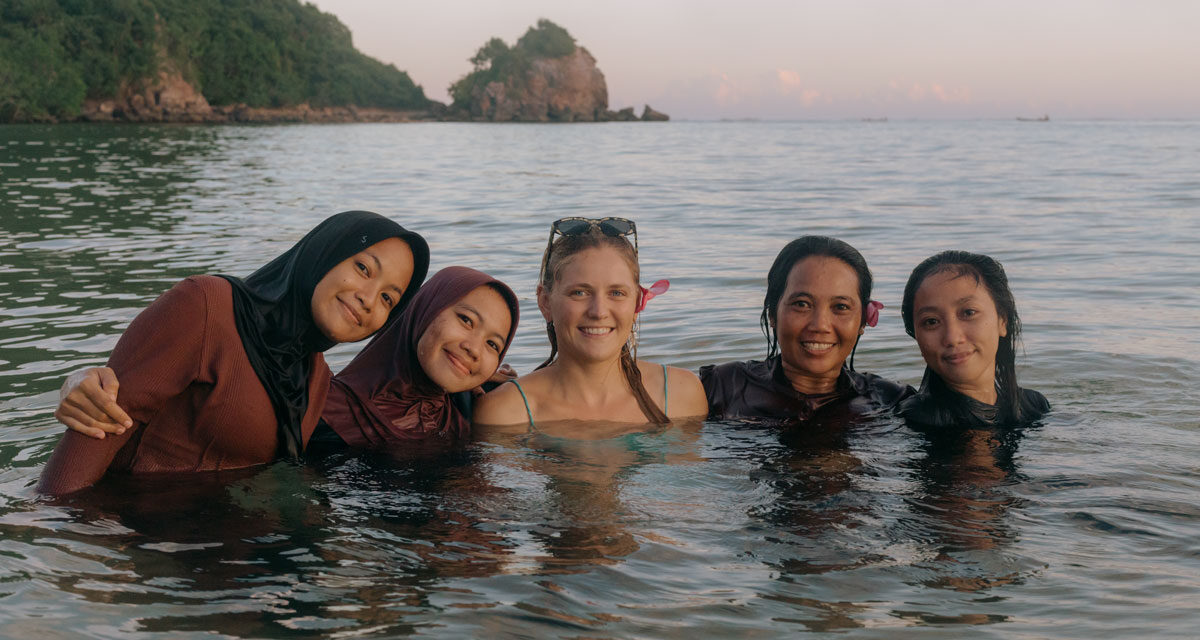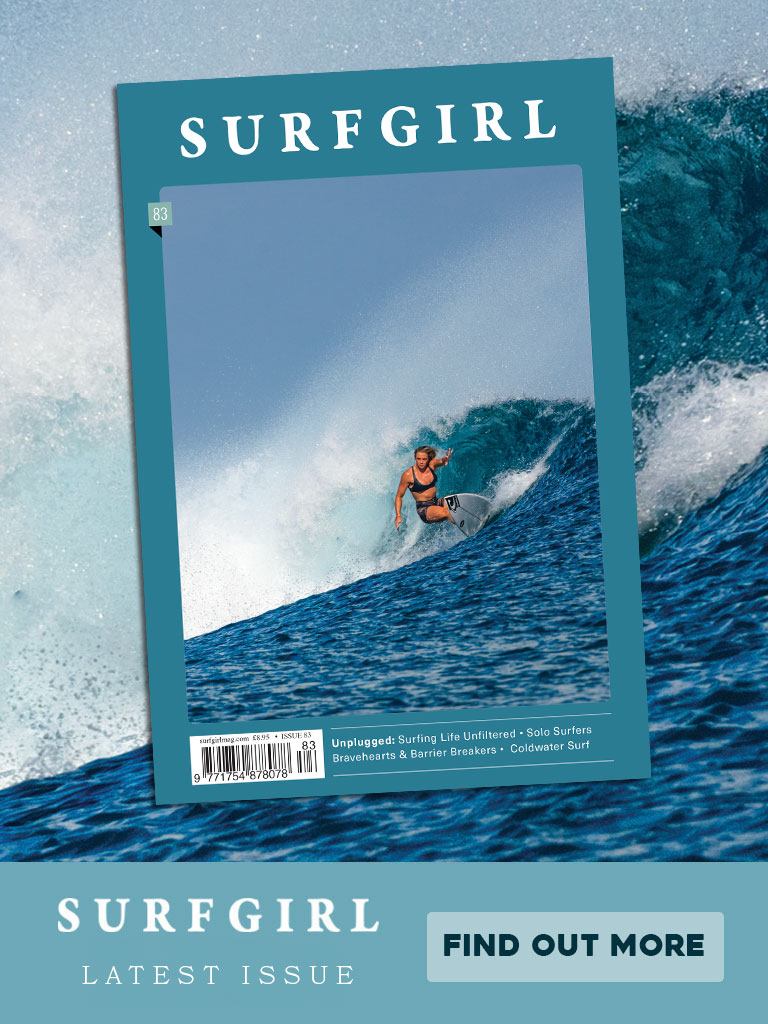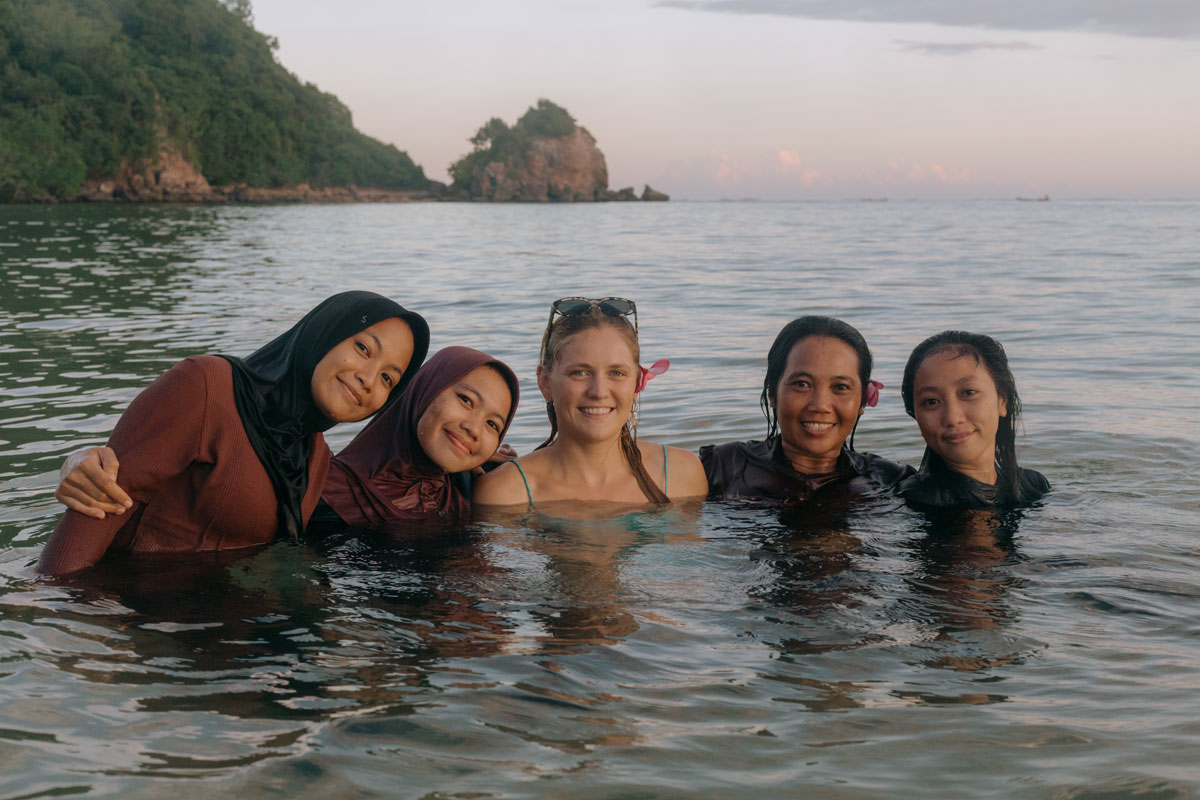

Every year, millions of tourists visit the island of Lombok, Indonesia to enjoy the world-class surf it has to offer. However usually local women aren’t seen in the line up and Maddy Bolt wondered why this was. It motivated her to empower local women by teaching them essential swimming skills, ocean safety, and life-saving techniques. Maddy set up Ocean Folx and here she shares her story.
Words Maddy Bolt Photos Coral Littlejohn @coral_littlejohn

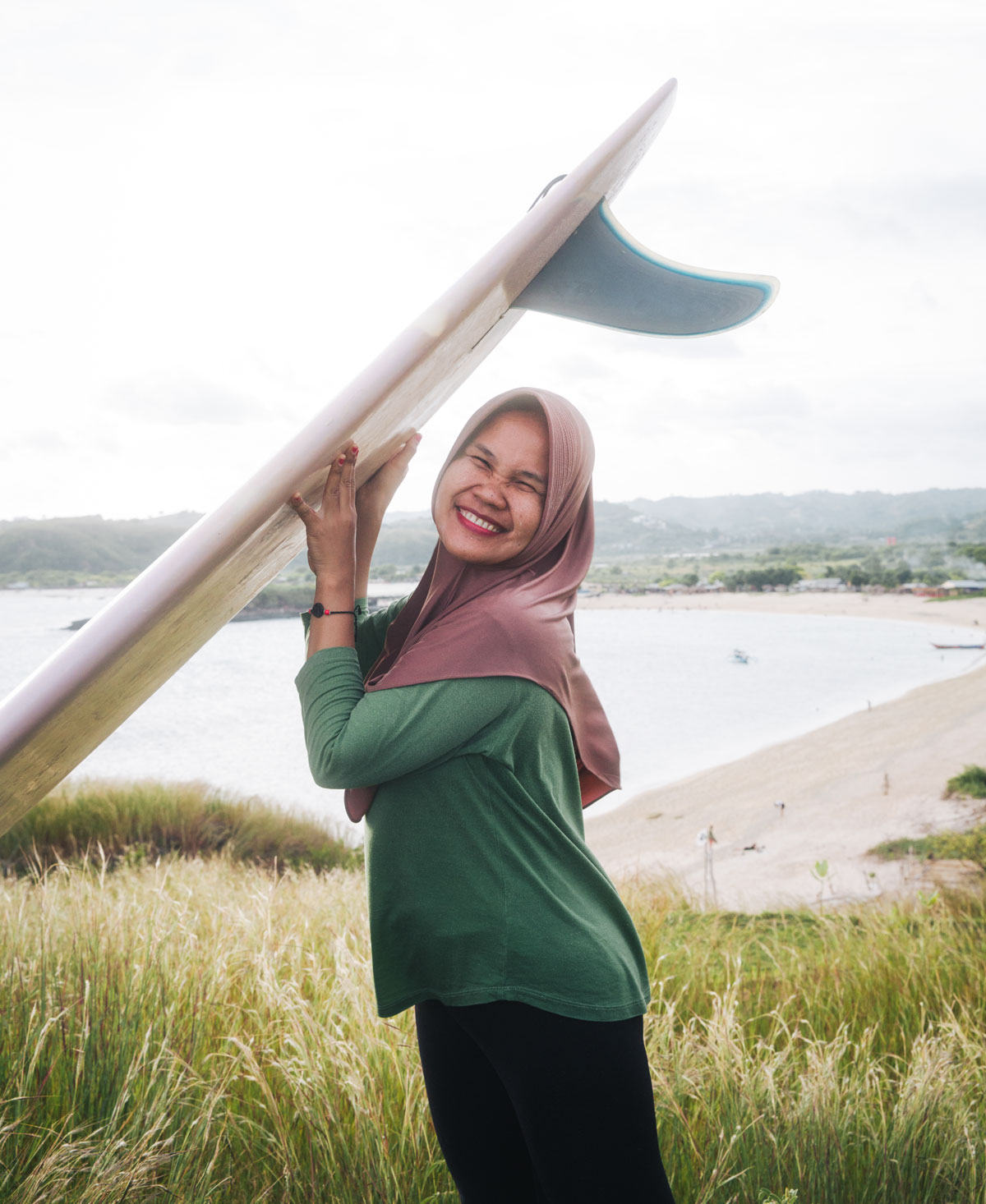
About six years ago was when my love affair with Indonesia began. Like many long-term relationships, I still look back on those early honeymoon days with rose-tinted glasses and a hint of nostalgia. I often catch myself daydreaming about the empty line-ups, big smiles, and huge nasi gorengs. One of my earliest surfing memories happened on my first visit to a spot called Insides in Lombok. Back then, it was common to have the break to yourself with just a few friends. Now trust me, I am not “blowing up the spot!” Today, even paddling out in the dark, it’s rare to find it empty. On this particular day six years ago, I had priority and was riding a clean, head-high right when a male tourist dropped in on me. Normally, I don’t say anything in these situations unless safety is a concern, as I prefer to avoid confrontation and negative energy in the water. However, the local surfers at the break stepped in and told the tourist to get off my wave. I appreciated their support, but I never want to be the cause of bad vibes in the lineup. Thankfully, the tourist eventually backed off, high-fived me after my wave, and I ended my session with one of my cleanest rides yet.
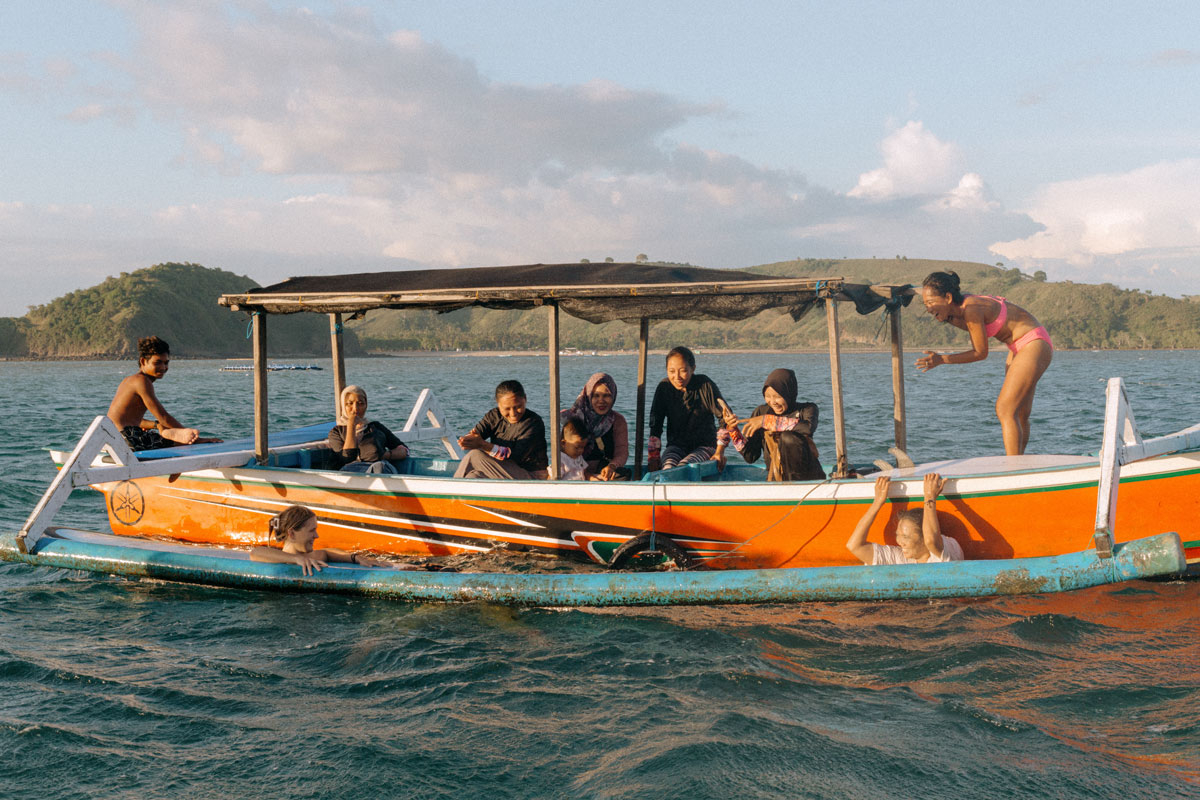
As I was heading back into town on the boat, with the sun setting low on the horizon, I felt grateful for the locals having my back. The water turned a metallic purple, and dragonflies buzzed around our boat as we made our way back. This was when I began to wonder, why hadn’t I ever seen local women in the water?
Even after six years, despite Insides being one of the most popular breaks in Lombok and Indonesia, I could count on one hand the number of local women I had seen surfing. Now living in Indonesia part-time and surfing almost daily, I continued to wonder about this. Were local women interested in surfing but just not participating? Or was I projecting my own “western” assumptions onto a community that might not share the same interest in the ocean?
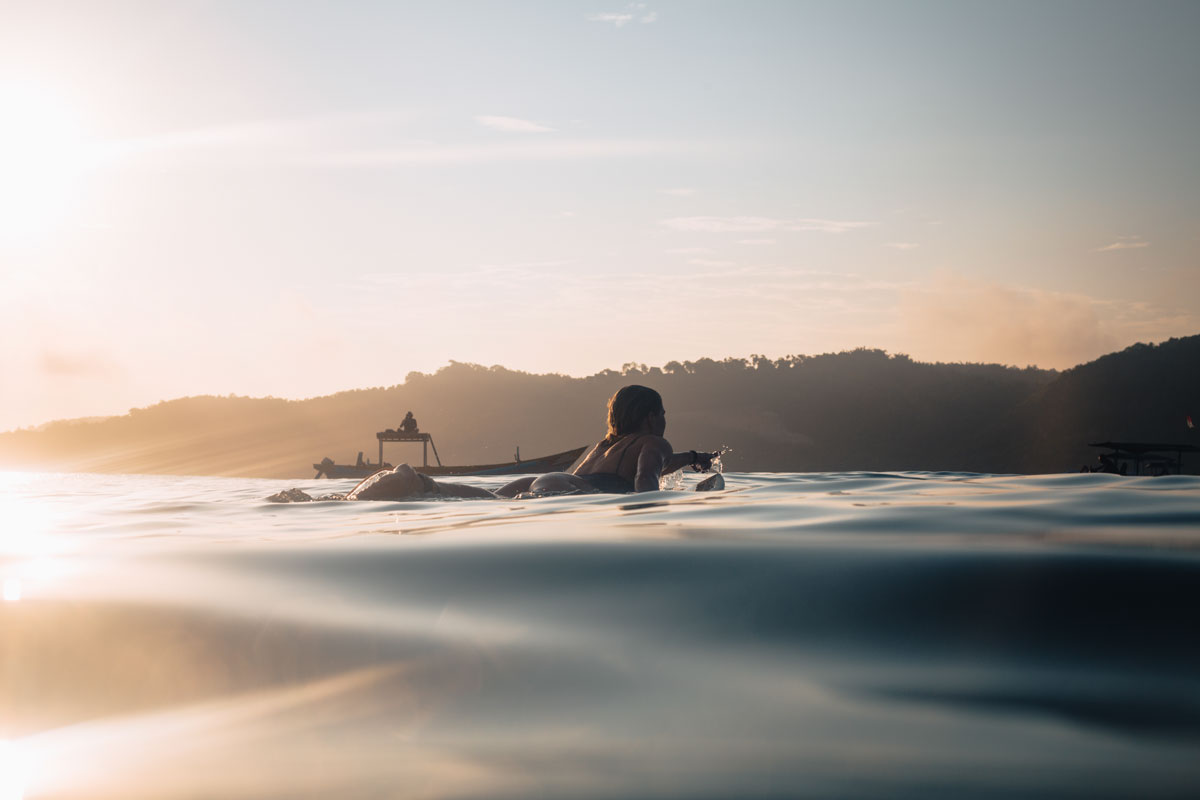

After settling back into Indonesia for a more permanent stay, I decided to find out the answer. This was when I turned to Misel, a close local friend of mine. She managed one of my favourite local restaurants in town and we had gotten to know each other drinking many coffees over the years. When I asked her if she was even interested in something like surfing, her eyes immediately lit up and she said, “Surfing?! That is my dream. Of course I want to surf.” Hm, OK so at least for Misel, it was not a question of not having the interest. When I probed her further and asked whether or not other local women felt the same way, she added exuberantly, “Many of my friends would love to surf! That is something we have only dreamt of doing!” Interesting, I thought, “So why have you not taken the leap to learn?” Misel laughed and said, “Well first we would have to learn how to swim!” Ah, this is where I had to check my privilege. I had assumed most of these women had grown up swimming since they lived on an island.
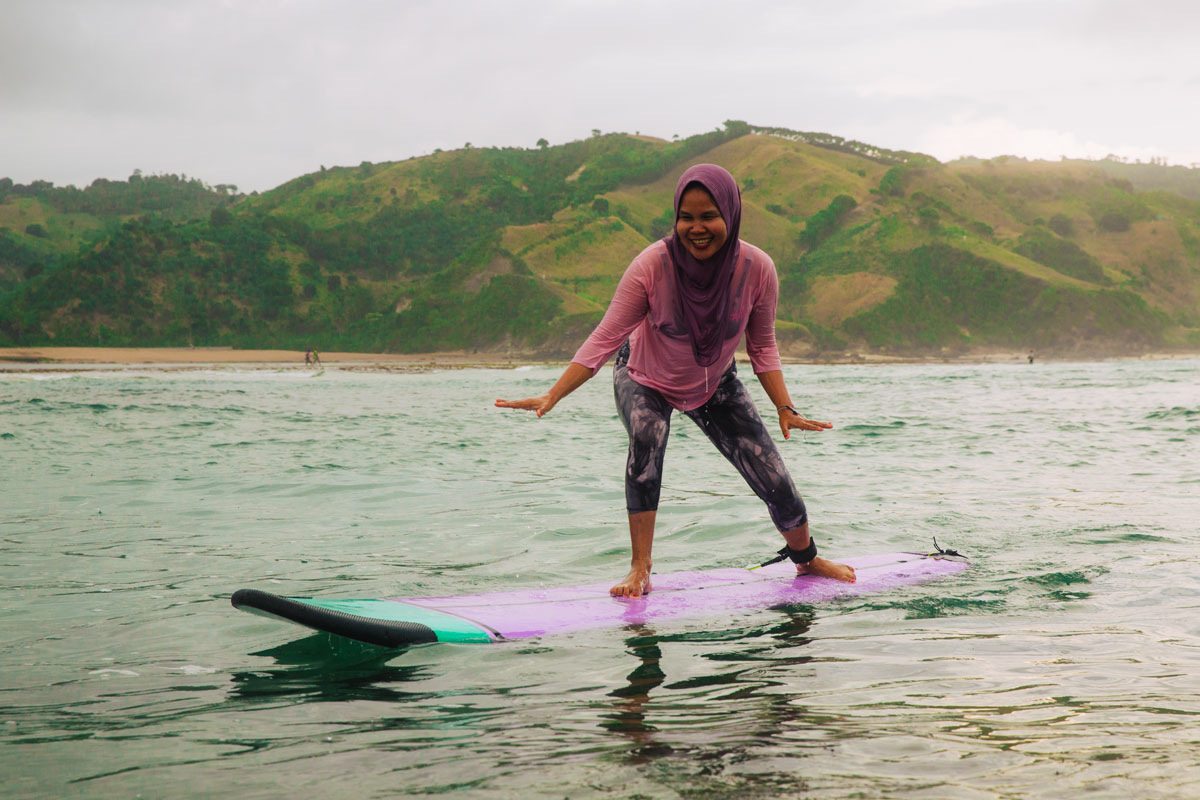
What I later realised, is that despite being in their mid-thirties and growing up in sight of the water their whole lives, many of the local women had never even been in the ocean past their knees. This was due to a myriad of reasons from a general lack of time due to child-care responsibilities, local folklore stigmatising the ocean as evil, and parents instilling fear in their young daughters in order to protect them. While this fear worked to keep women away from the ocean, it worked against their favour in dire situations.
Drowning is the third leading cause of unintentional injury death in the world, and one of the leading causes of accidental injury death in Indonesia. Children are especially at risk, since women, who are the primary caregivers to their families, are unable to swim and save any children that have been swept away by currents or rogue waves.
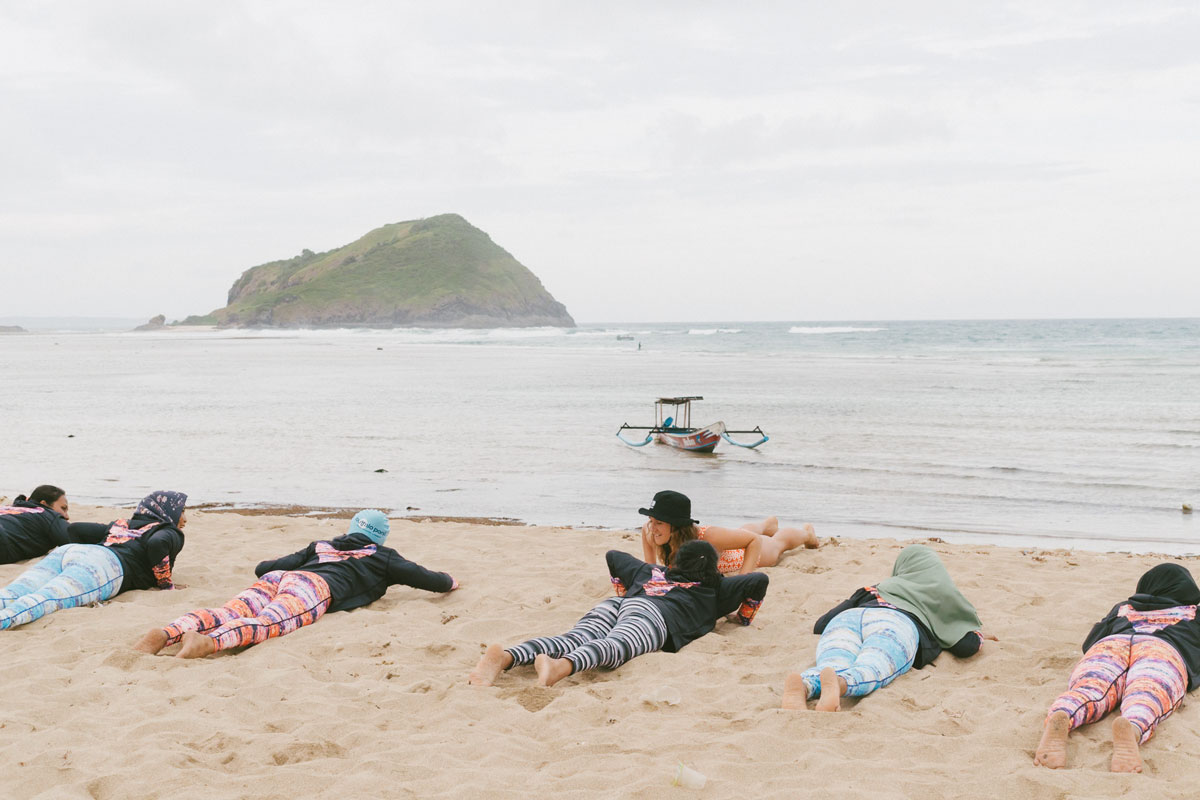
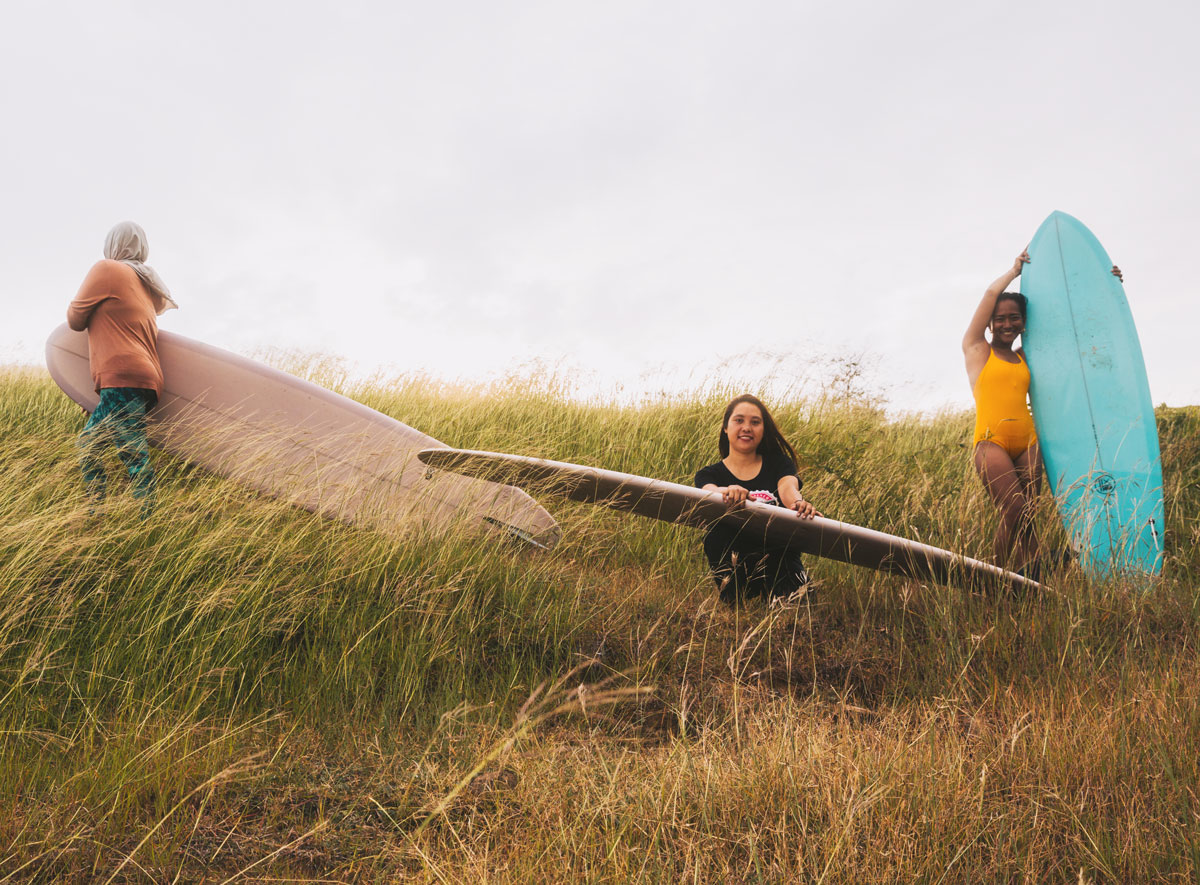
This is where the idea for OceanFolx began. In partnership with Misel and a few other local femme leaders in the community, we spent the next year building and starting a swimming, ocean safety, and surfing program. We aim to prevent drowning through a ripple effect. We empower local women by teaching them essential swimming skills, ocean safety, and life-saving techniques. For those who want to go further, we have started an introductory surf program once they’ve mastered adequate swimming and water safety skills. Our program goes beyond basic training by including a leadership component, which equips these women with the tools and confidence to pass these skills onto their children, families, and communities. This approach not only amplifies their impact but also fosters a broader culture of safety and knowledge.

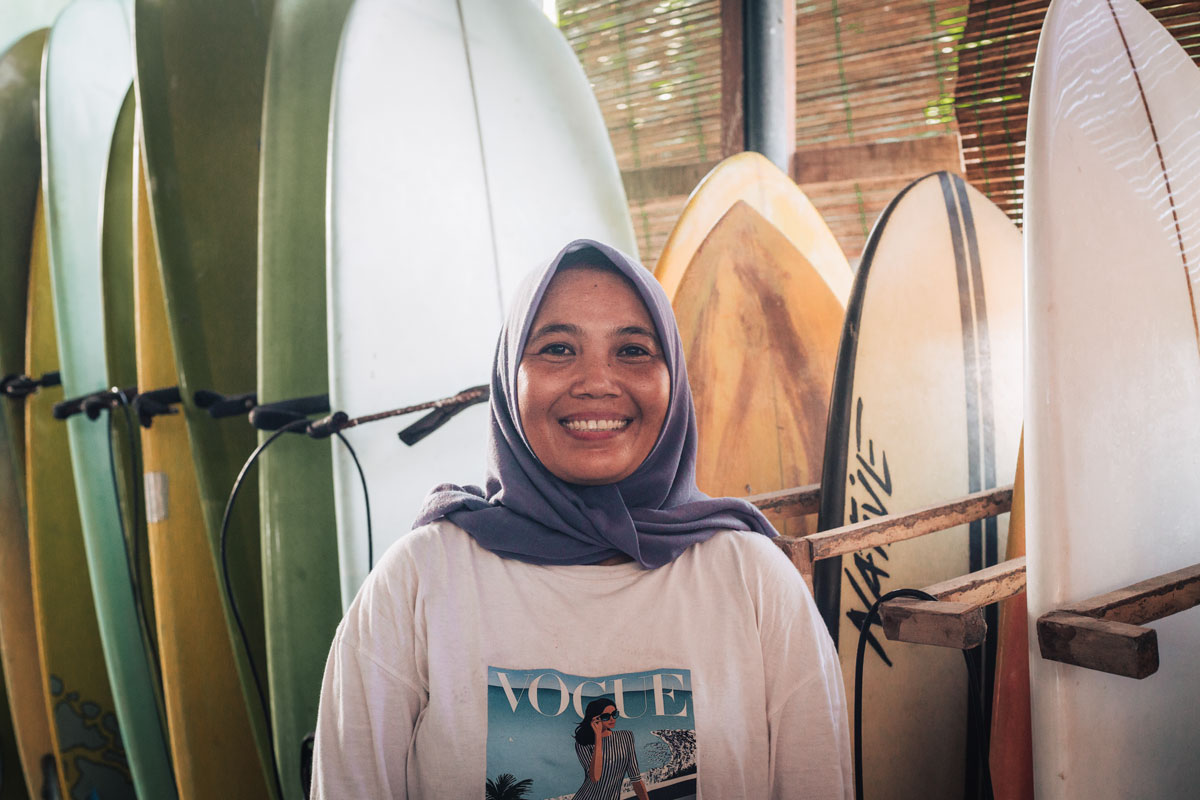
Through our initiative, we empower women, inspire local leadership, and promote environmental stewardship. By encouraging more time spent in and around the ocean, we help transform their relationship with the environment from one of fear to one of positive engagement and respect. Our program brings women together, creating a supportive community where they can empower each other and interact with the ocean in a safe and meaningful way.
In 2025, we will be running our second year of programming. Misel has come a long way, and is now working as our local program coordinator. She recruits new students to our non-profit program, and is working to become a swim teacher with us. We are committed to empowering more women through our comprehensive swim training program, guiding them all the way to becoming certified swim teachers. Our vision extends beyond our current reach; we aspire to expand our impact by introducing our programs to the neighbouring island of Sumbawa and by launching exciting new at-sea sailing programs. By donating, you can help us provide life-changing opportunities and build a brighter future for the women in our community.

Throughout this journey, I continue to be humbled and inspired everyday by Misel and each and every one of our students. Even though the surf is a bit more crowded now, I’m grateful for the moments when I glance beside me in the ocean and see a smile from one of the OceanFolx women. While the initial honeymoon period of my relationship with Indonesia may have passed, this next chapter feels even more meaningful. It’s the real deal and here to stay. I’m excited to continue changing the narrative in the water, getting more girls into the ocean, and, one day, having all of us women calling each other into waves at surf breaks all across Lombok.
OceanFolx is a 501(c)(3) non-profit working in partnership with local Lombok women teaching women how to swim, surf, and practise ocean safety. We provide this program at no cost to local women and compensate them for their time to offset any missed wages from work. Through our program, we prevent drowning, foster environmental stewardship, and encourage female leadership. When local women spend more time in and around the ocean, they develop a more positive relationship with their local environment and promote land and ocean stewardship in their local communities. You can support OceanFolx at oceanfolx.com or donorbox.com/oceanfolx.
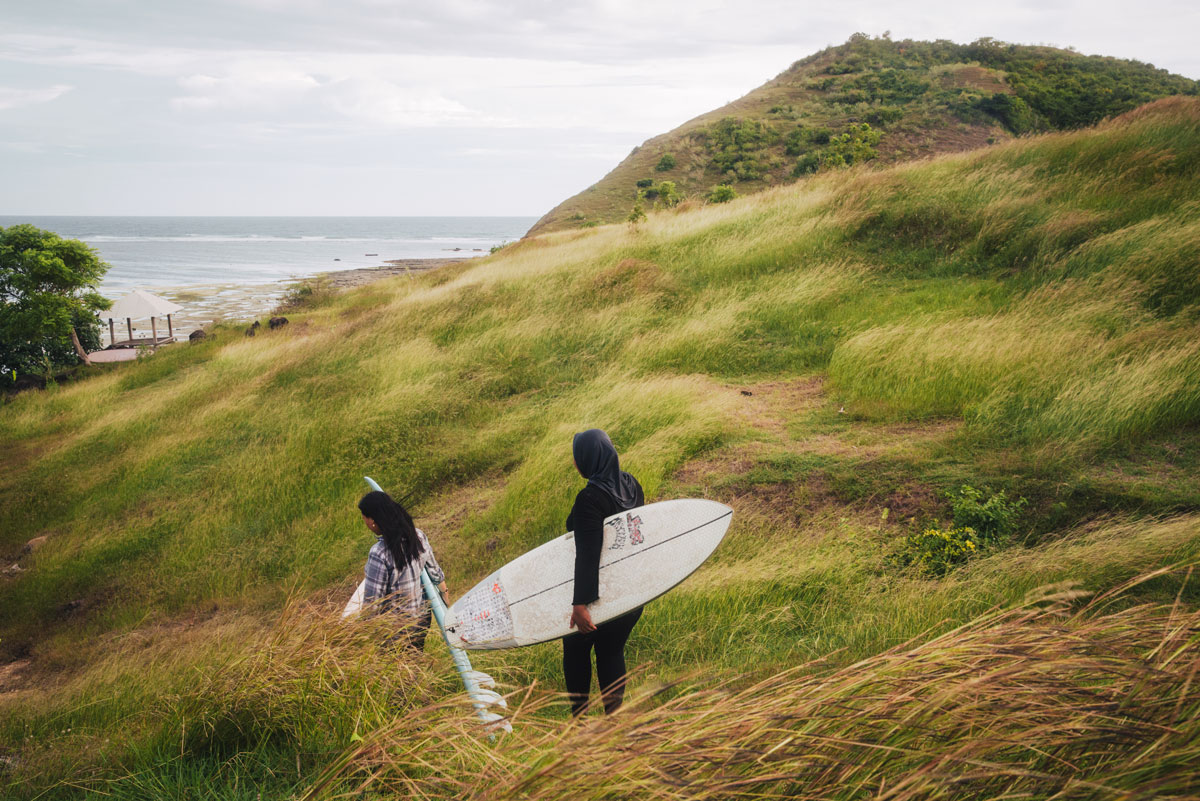

Maddy Bolt is a marine scientist, surfer, sailor, photographer, and writer with a deep passion for marine conservation and storytelling. She has studied marine biology in Canada and Australia, sailed across the Pacific Ocean, Indonesia, and the Caribbean. In 2023, Maddy founded OceanFolx, a non-profit organisation based in Indonesia along with a dedicated team of volunteers. Through her diverse work, she hopes to inspire other leaders to make a lasting impact on our planet in whichever way they excel.


